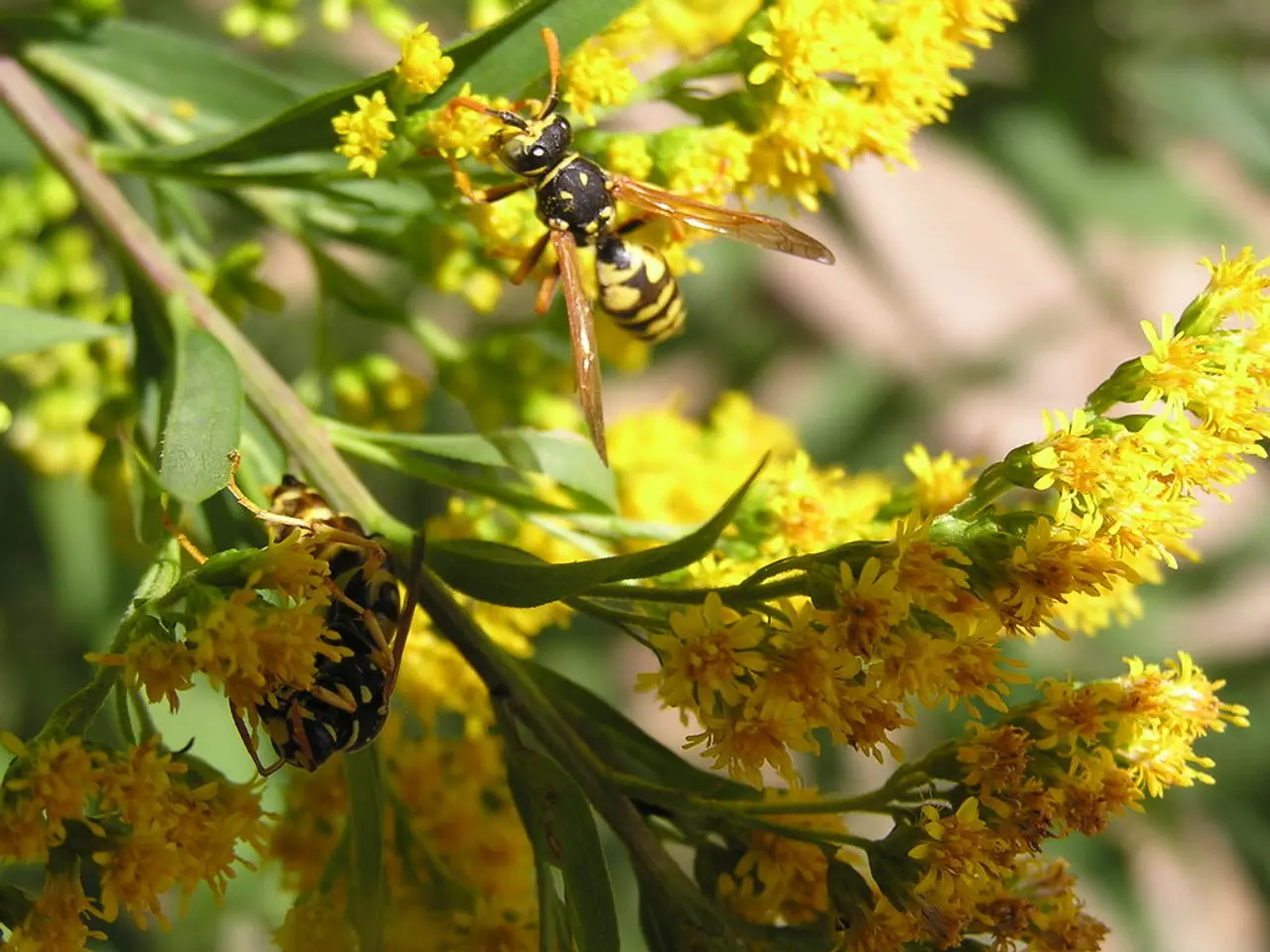Summer Garden Pest Management through Organic Methods
Organic Pest Control Strategies for Summer Vegetable Gardens
Maintaining a thriving vegetable garden during the summer months can be a challenge, especially when it comes to pests. However, there are numerous organic solutions available to help protect your plants without resorting to harmful chemicals.
1. Companion Planting
One effective approach is companion planting, where you strategically position pest-deterring plants near your vegetables. For instance, basil planted next to tomatoes helps repel whiteflies and aphids while enhancing tomato flavour. Marigolds near squash or beans repel nematodes and beetles. Radishes attract flea beetles away from cucumbers, and onions or leeks near carrots confuse root flies, reducing damage [1][3].
2. Beneficial Insects
Encourage natural predators like ladybugs and lacewings by growing pollen-rich flowers and avoiding broad-spectrum chemical pesticides. These insects prey on pests such as aphids and spider mites [3].
3. Physical Barriers
Lightweight row covers can be used to block pests like caterpillars and whiteflies from reaching plants while still allowing sunlight and water through [3].
4. Organic Sprays and Homemade Remedies
Neem oil sprays can be applied to disrupt pest life cycles for insects like aphids, spider mites, and grasshoppers. Diatomaceous earth powder can be dusted on plants to cause dehydration in soft-bodied insects. Garlic-based sprays or molasses traps also help repel pests like grasshoppers. Homemade sprays often combine neem oil or mild liquid soap with water for safe pest control without synthetic chemicals [2][4].
5. Manual Removal
Physically removing pest eggs or insects when possible, such as using duct tape to pick off squash bug eggs, prevents them from maturing and damaging plants [5].
6. Regular Monitoring
Inspect plants frequently for early signs of infestation—yellowing, holes, or visible insects—to catch and address problems early, reducing damage and reliance on treatments [3].
By combining these strategies, you create a balanced ecosystem that protects your garden from pests while maintaining soil health and pollinator safety, particularly important during the busy summer growing season [1][3][4].
- Spider mites leave tiny webs and cause leaves to turn yellow.
- Organic insecticides reduce the exposure to harmful chemicals.
- Nasturtiums attract aphids away from cabbage crops.
- Marigolds deter nematodes and aphids when planted with tomatoes.
- Soap spray (1 tablespoon of liquid soap with a quart of water) helps control soft-bodied insects like aphids and spider mites.
- Discoloration (yellow or brown spots) on leaves can signal a pest infestation.
- Caterpillars munch on leaves and flowers, causing significant damage.
- Garlic keeps aphids and spider mites away from roses.
- Companion planting creates a balanced ecosystem in the garden by promoting relationships between plants.
- Aphids are tiny, soft-bodied insects that suck sap from plants and often gather in clusters.
- Companion planting with certain flowers and herbs can repel pests.
- Organic insecticides are environmentally friendly as they break down naturally.
- Companion planting can help all plants thrive by choosing plants that benefit each other, rotating crops each season, and keeping an eye on pest populations.
- Monitor plant health for signs of stunted or unhealthy growth, which may indicate a pest problem.
- Look for egg clusters on leaves, as some pests lay eggs there.
[1] National Gardening Association
[2] Organic Gardening
[3] Mother Earth News
[4] Garden Myths
[5] The Spruce
- Incorporating marigolds into your home-and-garden, particularly when planted with tomatoes, can help establish an environmentally friendly lifestyle by deterring nematodes and aphids, enhancing the health of your summer vegetable garden.
- Home-made remedies such as garlic-based sprays and soap sprays (1 tablespoon of liquid soap with a quart of water) not only help repel pests like aphids and spider mites in your vegetable garden but also contribute to maintaining a lifestyle that promotes organically friendly practices within your home-and-garden environment.





